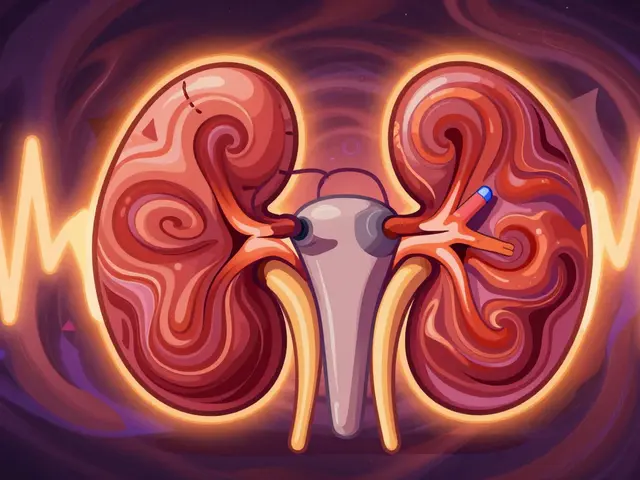
Expectorant Herbs: Simple Ways to Clear Your Chest
If a stubborn cough is keeping you up, you probably want something that works fast without a prescription. Herbal expectorants are plants that help thin and loosen mucus so you can cough it out easier. Below you’ll find the most reliable herbs, how they act, and practical tips for daily use.
Top Herbs That Act as Natural Expectorants
Thyme – This kitchen herb packs a punch. Its volatile oils loosen mucus and calm irritated airways. Brew a strong tea with 1 tsp dried thyme, pour boiling water over it, steep for 10 minutes, then strain. Drink 2–3 cups a day, but don’t exceed 5 tsp in 24 hours.
Licorice Root – Sweet and soothing, licorice contains glycyrrhizin, which reduces inflammation and thins secretions. Use 1‑2 g of dried root in hot water for a 15‑minute steep. Limit use to 2 weeks because high doses can raise blood pressure.
Mullein – The leaf and flower are both expectorant. A classic mullein tea uses 1 tsp dried leaves, steeped for 10 minutes. It coats the throat, eases irritation, and helps you cough productively. Safe for most adults, but avoid if you’re pregnant.
Eucalyptus – The oil is famous for its steam inhalation benefits. Add a few drops to hot water, cover your head with a towel, and breathe deeply for 5 minutes. The vapor opens airways and loosens mucus. Use only a few drops; the oil is strong.
Marshmallow Root – Not the candy, the plant has mucilage that soothes the lining of the throat while still allowing mucus to move. Make a tea with 1 tsp root, steep 10 minutes, and sip slowly.
How to Use Herbs Safely and Effectively
Start with a low dose and see how you feel. Herbs can interact with medicines – for example, licorice may affect blood pressure meds, and eucalyptus oil can irritate skin if not diluted. If you’re on prescription drugs or have a chronic condition, ask a pharmacist before beginning an herbal regimen.
Combine herbs for a broader effect. A blend of thyme, mullein, and a touch of eucalyptus works well for a chest‑clearing tea. Mix ½ tsp each, steep, and add a teaspoon of honey if you need extra soothing.
Stay hydrated. Water helps thin mucus, making any expectorant work better. Aim for at least 1.5‑2 liters of fluid a day, and consider warm drinks like herbal teas or broth.
Know when to see a doctor. If you have a fever, shortness of breath, or cough lasting more than three weeks, professional evaluation is essential. Herbs are supportive, not a cure for serious infections.
Store dried herbs in airtight containers away from light and heat. Fresh herbs lose potency quickly, so buying from a reputable source ensures you get the active compounds you need.
In short, expectorant herbs give you a natural way to break up mucus and breathe easier. Pick a few you like, try simple teas or steam inhalations, and listen to your body. With the right approach, you can manage a cough without reaching for over‑the‑counter syrups every time.
-
13 Sep






